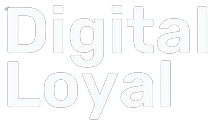Table of content
When setting up an email address for professional use, one of the most crucial questions you’ll face is, “What domain should I buy for email?” Choosing the right domain not only affects your email’s effectiveness but also your brand’s overall credibility. In this guide, we will dive deep into how to select the best domain for your email needs, covering everything from domain relevance to practical tips for securing the ideal domain.
What Domain Should I Buy for Email? Understanding Its Impact
What domain should I buy for email? This question is more significant than it might seem. Your email domain is a reflection of your brand and can significantly impact how your communications are perceived. A professional, relevant domain can enhance trust and boost your brand’s image. Conversely, a poorly chosen domain might undermine your credibility and affect your communication effectiveness.
Key Considerations for Choosing the Best Domain for Your Email
1. Brand Consistency
When choosing a domain for your email, consistency with your brand is key. Ideally, your email domain should match your brand name. For example, if your company is called “Digital Loyal” then an email like “info@digitaloyal.com” is much more professional and memorable than “digitaloyal123@gmail.com.”
2. Choosing the Right Domain Extension
The domain extension (TLD) you choose can affect your email’s professionalism. Common TLDs like “.com,” “.net,” and “.org” are widely recognized and respected. However, industry-specific extensions such as “.tech” or “.design” can also be effective, provided they align with your business.
3. Simplicity and Memorability
Simplicity is crucial when selecting a domain. Opt for a short, easy-to-spell domain that is memorable. Avoid using hyphens or complex characters which can make your domain less user-friendly and harder to recall.
4. Avoiding Legal and Branding Issues
Ensure that your chosen domain doesn’t infringe on existing trademarks or brand names. Avoid domains that are too similar to established brands to prevent confusion and potential legal issues.
5. SEO and Professional Image
While the domain itself doesn’t directly impact SEO, a professional and relevant domain can influence your overall online presence. A strong, recognizable domain can enhance your brand’s image and build trust with your audience, indirectly supporting your SEO efforts.
Practical Steps to Find the Best Domain for Your Email
1. Utilize Domain Name Generators
If you’re unsure where to start, domain name generators can be invaluable. Tools like NameMesh and Lean Domain Search can help you brainstorm and check the availability of potential domains.
2. Verify Domain Availability
Once you have a few domain names in mind, check their availability using domain registration platforms. Sites like GoDaddy and Namecheap offer tools to check if your desired domain is available and allow you to purchase it.
3. Register Your Domain Quickly
Domains can be snapped up quickly, so it’s crucial to register your chosen domain as soon as possible. This ensures that you secure the domain before someone else does.
4. Consider Domain Privacy Protection
When registering a domain, your personal information can become publicly accessible. To protect your privacy, consider opting for domain privacy protection, which keeps your personal details confidential.
5. Plan for Future Expansion
Choose a domain that will continue to be relevant as your business evolves. Avoid overly specific names that might limit your future growth or rebranding opportunities.
Frequently Asked Questions About Choosing a Domain for Email
1. How do I select the right domain name for my email?
To select the right domain name for your email, ensure it aligns with your brand, is simple and easy to remember, and uses a professional TLD. Avoid complex spellings and ensure the domain is available.
2. Is it worth investing in a custom email domain?
Yes, investing in a custom email domain enhances your professional image and credibility. A personalized domain like “yourname@yourcompany.com” is more professional than a free email service domain.
3. What should I avoid when choosing a domain name?
Avoid choosing a domain that is too similar to established brands, contains complex characters, or is excessively long. Ensure the domain is unique and doesn’t infringe on trademarks.
4. How can I check if a domain is available?
You can check domain availability through registration sites such as GoDaddy or Namecheap. These platforms provide tools to search for and register available domains.
Conclusion: What Domain Should I Buy for Email?
Selecting the right domain for your email is a critical step in establishing a professional online presence. By focusing on brand relevance, choosing the right domain extension, keeping your domain simple, and ensuring availability, you can make an informed decision that enhances your email communications and brand image.
For additional guidance on domain registration and email setup, explore resources like 10 Powerful Tips on how to pick a domain name.
Choosing the right domain is not just about finding a web address; it’s about building a professional image and ensuring your email communications are effective and trustworthy.


